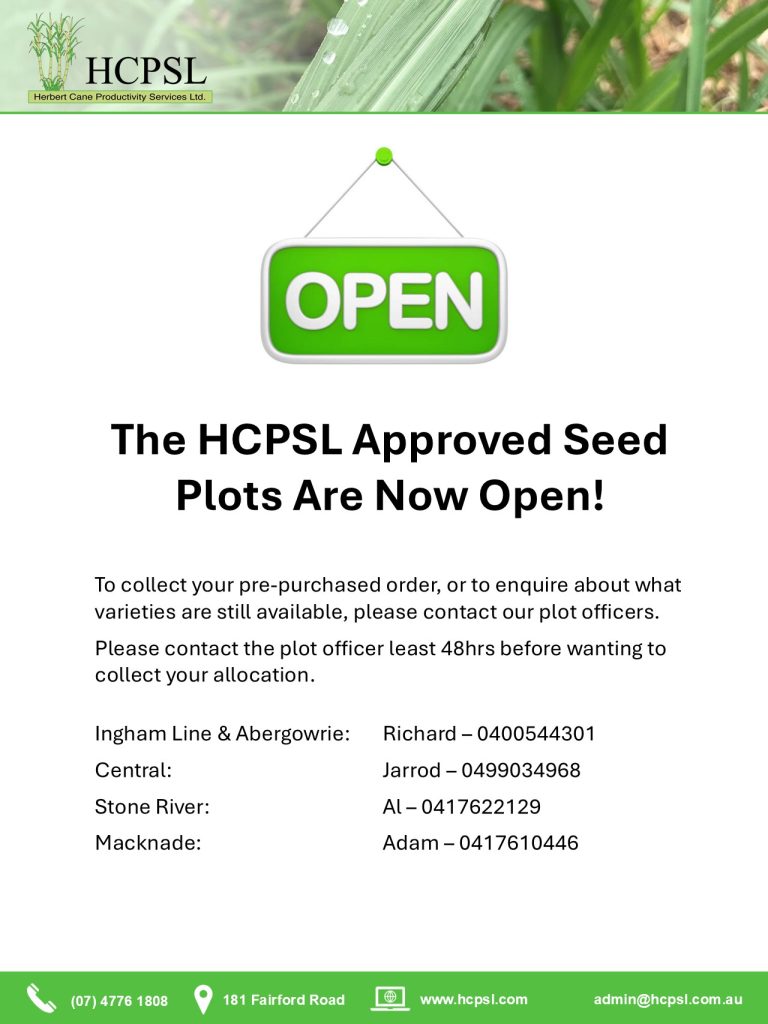In 2023 HCPSL adopted qCPR as the primary testing method for Ratoon stunting disease (RSD). The qCPR method,
carried out by the Sugar Research Australia (SRA) laboratory, is highly sensitive and much more effective at detecting
RSD infections than the slicing or microscope (PCM) methods.
As a result, HCPSL has seen an increase in the number of positive RSD results when testing grower seed cane
material. This increase in RSD detection has led some growers to suggest they may have sourced infected material
from HCPSL Approved Seed plots.
The Q & A below will help to explain why HCPSL believes the increase in positive detections is due to the improved
testing method and not from HCPSL Approved Seed plots.
Q. How does HCPSL test their Approved Seed plots for RSD?
A. Each year HCPSL conducts intensive RSD sampling of every Approved Seed and Approved Seed source (Mother)
plot, including plant and ratoon. Every variety in every plot is sampled and sent to the SRA lab for testing. Testing of
Approved Seed plot material often includes what is referred to as ‘concentrated’ test, where the sample is
concentrated to make it even more sensitive to the detection of RSD.
Q. Has HCPSL ever had a confirmed detection of RSD in their Approved Seed Plots?
A. HCPSL has never had a confirmed positive result in any of our Approved seed plots. If a sample was to be
confirmed as a positive infection HCPSL would immediately consult with an SRA plant pathologist and follow all
advice provided, as well as notifying our members of the situation.
Q. Why are growers finding RSD in on-farm seed material initially sourced from Approved Seed plots?
A. Good on-farm and equipment hygiene (sterilisation) is critical to reducing your risk of RSD. There are several ways
on-farm seed cane material could become infected;
- Cane volunteers in fallow blocks
- Infected material or parts in planters
- Infected farming and cutting equipment (coulters, slashers etc)
- Other potential transmitters (animals etc)
SRA provides a comprehensive guide to understanding and managing RSD, which can be found via their website at –
https://sugarresearch.com.au/diseases/ratoon-stunting-disease
If you would like further information about RSD or the sampling conducted by HCPSL please give me a call on
47761808 or 0417610446.











Recent Comments